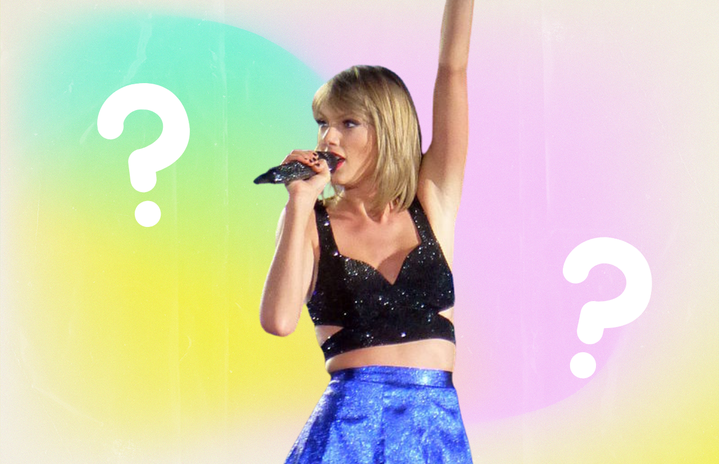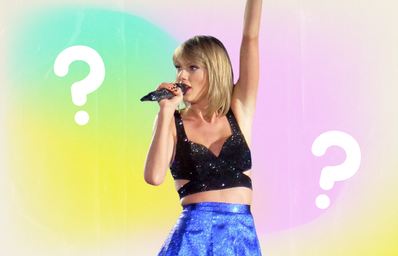Readers, not to seem conceited, but I just might be brilliant.
Well, that is if you consider faultlessly (or subjectively—pick your adjective) attributing Taylor Swift songs to female literary authors brilliant.
(I do).
I’m not quite certain when I first entertained the idea. Did it come to me via dream, much like Twilight to Stephanie Meyer? Or in the midst of an endorphin-riddled high, post-Peloton cycle? Perhaps whilst shampooing three-day-old locks because it’s much too challenging to wash one’s hair in communal showers on the reg?
Apologies, I suppose that last bit surpassed our level of familiarity. I digress.
Regardless of when (or how) the brilliance struck, I’ve found myself unable to let go of the concept. So here we are.
For simplicity’s sake, I will not include every female literary author (I, unfortunately, am not an omniscient journalist). However, I consulted several other self-described bibliophiles in my research and have curated a list of authors that illustrates the demographic holistically. That is to say, we have representatives of most every genra.
In terms of how my research is structured, each author will be accompanied by their notable works, corresponding Taylor Swift song and lyric, and my (brief) analysis. So, without further ado, I present to you: “If female literary authors were Taylor Swift songs.”
Virginia Wolfe: “A Room of One’s Own,” “Mrs. Dalloway”
- Corresponding song: “mad woman”
- Corresponding lyric: “Now I breathe flames each time I talk/ My cannons all firin’ at your yacht”
- (Brief) Analysis: Arguably one of the most prolific feminist authors of her time, I, not surprisingly, selected Swift’s “mad woman,” the unofficial feminist anthem of 2020, as the lyrical embodiment of Woolf and her work.
Jane Austen: “Pride and Prejudice,” “Emma”
- Corresponding song: “Lover”
- Corresponding lyric: “And I’m highly suspicious that everyone who sees you wants you/ I’ve loved you three summers now, honey, but I want ’em all”
- (Brief) Analysis: Of course, I chose “Lover.” Austen’s novels are essentially the archetypes of all existing romantic tropes; it’s only fitting that Swift’s most popular ballad is her song equivalency.
Agatha Christie: “And Then There Were None”
- Corresponding song: “no body, no crime”
- Corresponding lyric: “They think she did it but they just can’t prove it/ She thinks I did it but she just can’t prove it”
- (Brief) Analysis: Christie is, perhaps, best known for her mystery novels; how could I possibly pick a song other than “no body, no crime”?
Margaret Atwood: “The Handmaid’s Tale,” “The Testaments”
- Corresponding song: “I Did Something Bad”
- Corresponding lyric: “They’re burning all the witches, even if you aren’t one/ They got their pitchforks and proof”
- (Brief) Analysis: I haven’t had a chance to read a novel of Margaret Atwood’s (I know, I know), but from what I understand, they call attention to the gender inequalities embedded within the societies of both today and Atwood’s chosen time frame. In a similar manner, “I Did Something Bad” illuminates the misogyny Swift has endured as a female artist and her continued effort to regain control of the narrative (which I’d argue she does brilliantly). Although they were composed years apart, Margaret Atwood’s novels, specifically “The Handmaid’s Tale,” and Swift’s “I Did Something Bad” are mirror images of each other in terms of meaning.
Sally Rooney: “Conversations with Friends,” “Normal People”
- Corresponding song: “’tis the damn season”
- Corresponding lyric: “And the road not taken looks real good now”
- (Brief) Analysis: Rooney is an incredibly nuanced author. Her writing may seem simple, but there is an innate complexity to her characters, particularly with regard to their expression of emotion. “’tis the damn season” similarly illustrates an assortment of sentiments—i.e., the narrator’s unresolved longing for an old flame—and is, thus, the rationale for my selection. Readers of Rooney know that a novel of hers is incomplete without a touch of misunderstanding and sexual tension.
Again, this is not a complete list. If it was, Liane Moriarty, Donna Tartt, Judy Blume, Veronica Roth, etc. would also be present. (Apologies, ladies.) But, if there’s one thing to be gained from reading “If female literary authors were Taylor Swift songs” (save for stellar conversation openers), it’s the demonstration that Taylor Swift—her songs, lyrics, albums, what have you—can be correlated to just about anything.
Note: “Midnights” is genius, but I don’t feel qualified to speak to the meaning of Swift’s newest lyrics just yet. This is why I chose to exclude Midnights’ songs from my list. Though, I have a suspicion that “Vigilante Shit” could adequately describe both Virginia Woolf and Margaret Atwood.

